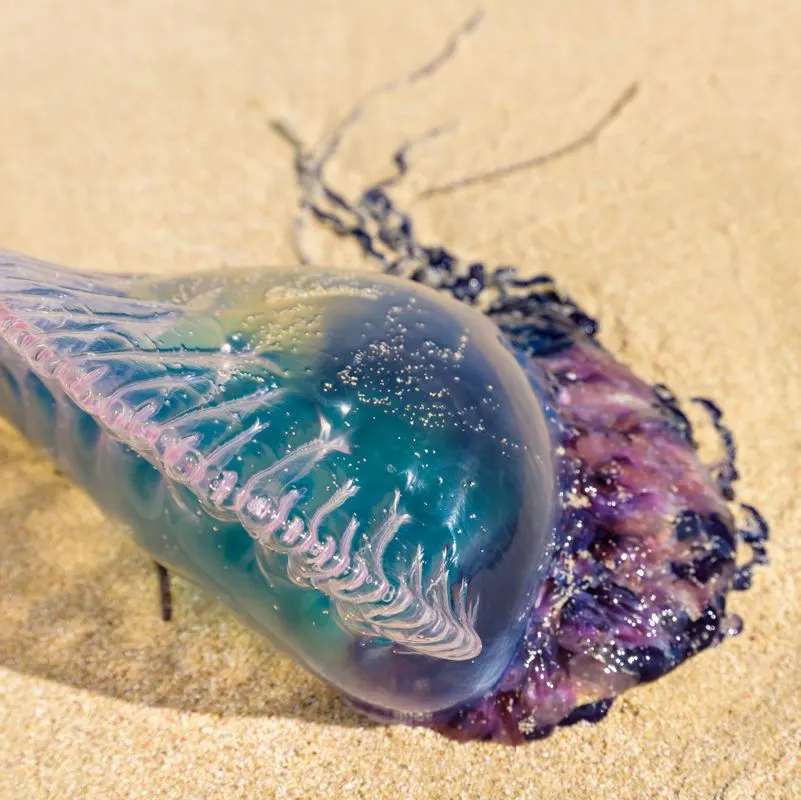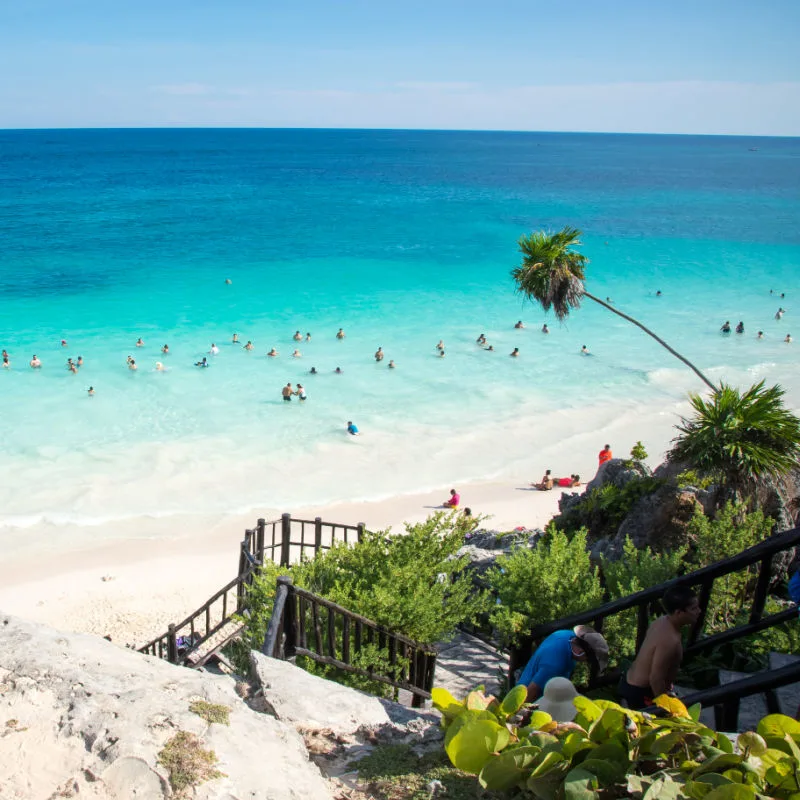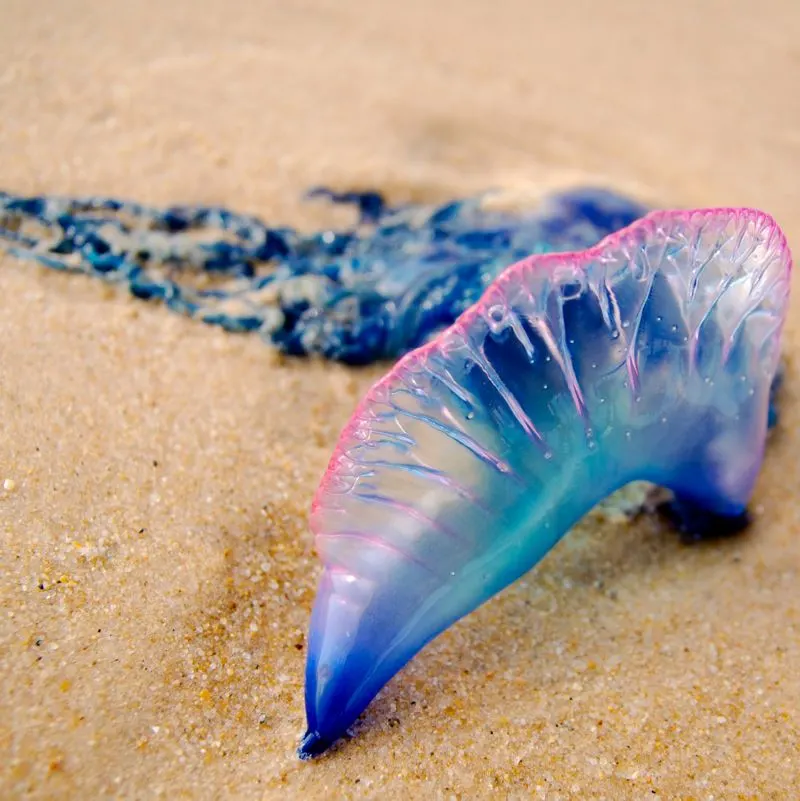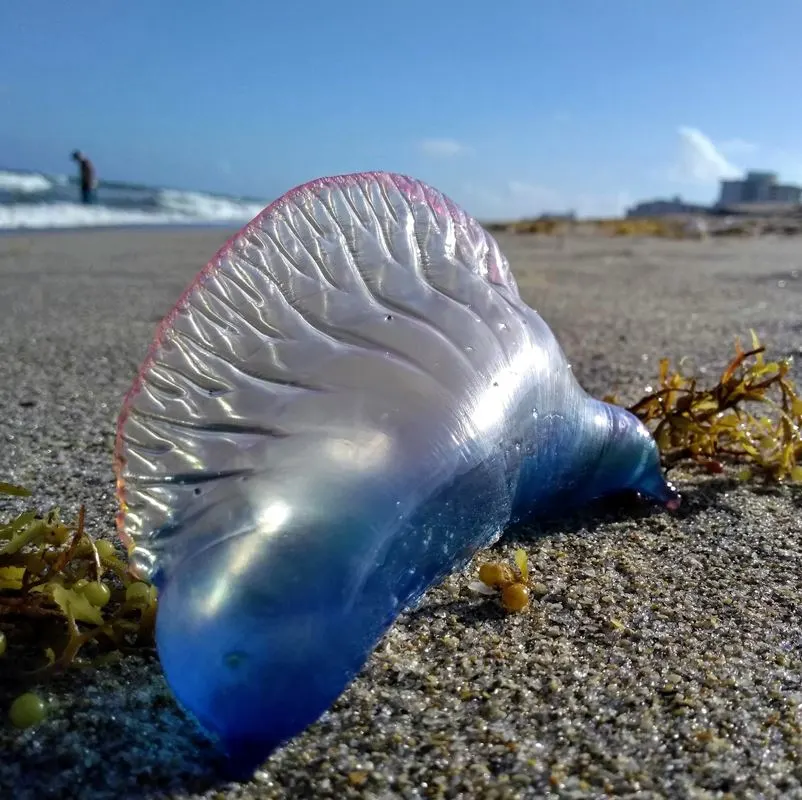Travelers to Cozumel and Playa del Carmen are being warned of the presence of one of the ocean’s most famous and dangerous inhabitants, which has chosen the warm waters of the Mexican Caribbean to spend its winter in.
Thankfully, it isn’t sharks or the mythological Kraken that travelers need to keep an eye out for, but the interestingly named Portuguese Man o’ War.
A jellyfish-like creature infamous for its painful sting.

Where To Be Cautious
First, it needs to be made clear that these creatures rarely stay in one place for too long.
Currently, the main area at risk from the arrival of the Portuguese Man o’ War is the water directly off the west coast of Cozumel Island.
For those not familiar with the geography of the Mexican Caribbean, Cozumel lies directly off the coast of some of the area’s most popular destinations, and as such it means these destinations could also come into contact with these stinging visitors.

Travelers who enjoy a leisurely swim while on vacation in the following destinations should remain vigilant:
- Playa Paraiso
- Punta Maroma
- Playa Del Carmen
- Cozumel (West)
- Puerto Aventuras
- Xpu Há
- Grand Sirenis
- Akumal
So far, the super-popular destination of Tulum looks free from this minor invasion, although that could change in the coming days and weeks.

The Invader
Throughout history, the Portuguese Man o’ War has been famous among sailors, swimmers, and surfers for its excruciating sting.
Earning the creature a fearsome reputation despite its generally unaggressive nature.
All it takes is a split-second contact with one tentacle for an unfortunate person to find themselves in a painful, and at times potentially life-threatening, situation.

For most people, a sting from this seafaring creature will cause no more than a large red welt where contact was made and a painful stinging/burning sensation that can last for 20 minutes or more.
For others, it can cause serious bouts of nausea, chest pain, and difficulty breathing.
In extreme cases, for people with underlying health conditions, a sting from the Portuguese Man o’ War can cause cardiac arrest. Although uncommon, it’s a chance not worth taking.
Please note; that it’s a bad idea to poke or prod at a washed-up Portuguese Man o’ War, these creatures can still sting for multiple days after their death.

What To Do If Stung
The way to deal with a sting from a Portuguese Man o’ War is surprisingly simple.
If the symptoms are mild, find the nearest OXXO convenience store or local supermarket and purchase vinegar (Vinagre in Spanish); apply this liberally to the affected area to neutralize the venom from the sting.

Under no circumstances apply freshwater or ammonia to the affected area, while this may help relieve the sting of other animals, in this instance it will enhance the potency of the venom and create a more painful experience.
In the event that more extreme side effects are felt, such as nausea or trouble breathing, it is important to seek immediate medical attention.
While the symptoms are unlikely to get worse, it’s better to be safe by visiting a nearby doctor or hospital for assistance.

When Will They Leave?
It can be difficult to predict how long these creatures will stay in the area due to how they travel.
While widely known as a type of jellyfish, the Portuguese Man o’War is actually what’s called a siphonophore, which is a collection of organisms attached to a floating sack, acting as one creature while being made of several.
On top of that very alien-sounding existence, it is also incapable of physically swimming on its own and instead relies on ocean currents and the winds to move it from place to place when it feeds on small fish using its stinging tentacles, a weapon that can grow up to 160+ feet long.
Overall, the danger to travelers is low so long as extra caution is taken when swimming.
Plan Your Next Cancun Vacation:
Traveler Alert: Don’t Forget Travel Insurance For Your Next Trip!
Choose From Thousands of Cancun and Riviera Maya Hotels, Resorts and Hostels with Free Cancellation On Most Properties
↓ Join the community ↓
The Cancun Sun Community FB group has all the latest travel news, conversations and tourism Q&A’s for the Mexican Caribbean

Subscribe to our Latest Posts
Enter your email address to subscribe to The Cancun Sun’s latest breaking news affecting travelers, straight to your inbox.

VDOgrannie
Friday 23rd of February 2024
Or urinate on the infected area. Islanders have been doing this for years.
Christina
Thursday 22nd of February 2024
Thankfully it isn't sharks? 😅